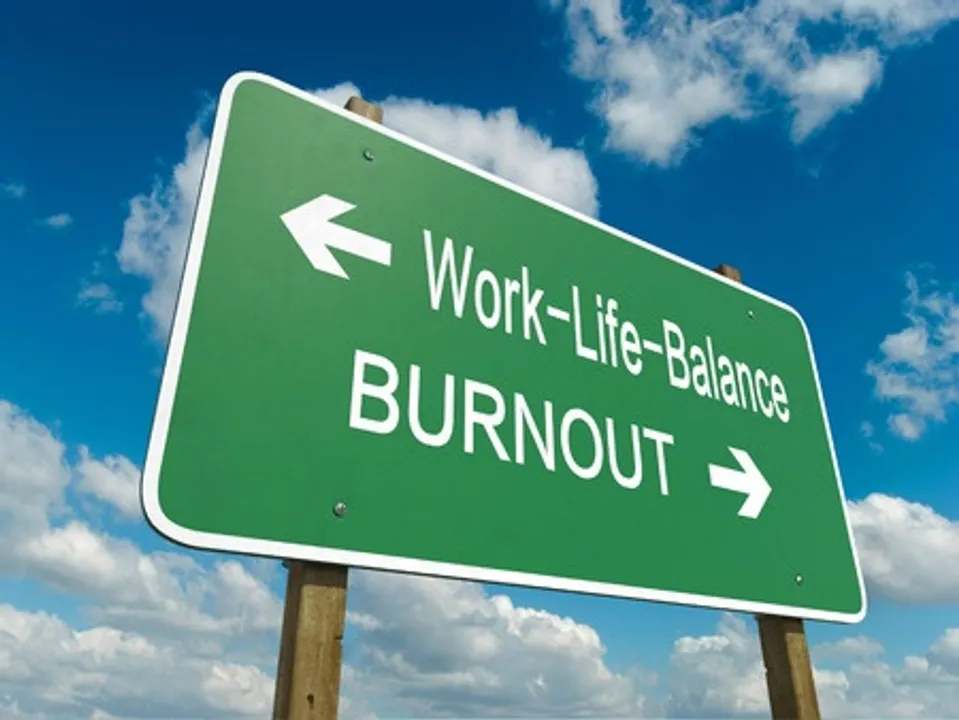Balancing Your Lifestyle in Healthcare: Surviving The Hospital Lifestyle

LIU MING/123RF.com
Most clinical hospital workers will probably agree that their jobs aren’t just jobs, but lifestyles. Just like being a member of the military or a flight crew, health care is an overwhelming endeavor that rules most aspects of your life and will routinely demand a lot more out of you (and of those around you) than most other ‘normal’ people will appreciate.
The clinical job’s sphere of influence sends out insidious ripples right through the lives of your significant others and mercilessly stomps through your personal and social lives: Missed birthday parties, cancelled weekend trips, cold dinners, unused theatre tickets, and quiet disappointment in the eyes of your loved ones are among the collateral damage of having a job that is defined by the incessant tending to human suffering and all its inglorious unpredictability.
It’s remarkable that the rates of depression, substance abuse, and burnout aren’t higher than they are among health care workers. Among the reasons for this is the fact that there are effective measures one can take to manage and cope with the extraordinary demands of a clinical job.
Let us briefly touch on some of these practical strategies:
- Recognize Your Limits. Remember that no matter how great your talent, hard work and dedication, there will always be more work to be done, and the system will continue to ask more from you. Therefore, you must know yourself and your limits and defend both fiercely.
- Recognize Your Needs. In a building full of sick people, no one is likely to stop and wonder whether your needs are being met, so you must be your own top advocate. The work will never end, so it makes little sense to run yourself into the ground during a single shift, only to pay for it over the following 7 days. Regardless of your shift hours, be sure your sleep time at home is well protected and develop a clear routine that works for you (we’ll cover this in another installment in this series). Likewise, at work you will need to protect your rest times and make good use of them by taking a relaxed walk around the building, running an errand, getting fresh air, getting a healthy snack, or simply retiring to the on-call room for a good stretch or even a cat nap. Avoid smoking breaks, eating junk food as an immediate reward, or blankly sitting in front of the t.v. in the staff room.
- Do Away With Any Shame. Healthcare professions are competitive, and the nature of the work demands so much out of each one of the team members that one way to cope is to put on a ‘warrior’ persona and try to derive pleasure out of the huge challenges thrown at us. But what if that approach isn’t your thing? It’s likely that at some point, something or someone in the system will attempt to shame you for not being ‘hard core’ enough. Don’t give in to peer-pressure. You need to trust your judgment as to whether you are fulfilling what is expected of you at work, while taking care of yourself. Remember, it is your responsibility to keep your body and mind ‘fighting fit;’ don’t let anyone else tell you how much to give to your job.
- Brief Your Loved Ones. Don’t give in to the temptation of trying to be all things to all people. Explain to your family and friends the intrinsic unpredictability of your profession and why plans that include you must always have the flexibility to accommodate for this. Avoid situations where social activities will be put on hold until you join your loved ones. For instance, instead of hoping to ride together to the theatre, meet them there and buy your ticket at the door if you make it. Also, always discuss a ‘Plan B’ in advance so no one will be frustrated or disappointed in case you can’t meet them ‘as promised.’ This brings us to another important point: Never promise that you will show up or that you will be there on time! There are few things worse than feeling guilty for simply doing your job conscienciously.
- Don’t Be A Walking Contradiction. Healthcare is about life, health, wellness and fitness. Everybody knows that, especially the people working at hospitals, and yet, health care workers are no better at ‘walking the talk’ than the average patient. If you will be dedicating most of your waking hours to caring for others, then be sure you take the appropriate time to care for yourself. Protect your sleep time, plan your meals to maximize your nutrition and control your weight, carve out the time to exercise in ways that bring you joy and engage your mind, and maintain a healthy perspective on the level of stress you allow your job to cause you. Studies have shown that healthy and fit healthcare workers are more effective at their jobs when counseling patients to lead healthier lives.
There are probably as many other tricks as there are health care workers in the world. What strategies have helped you not just get by on a clinical job but actually thrive, serve your patients better, and enjoy going to work in the morning (or afternoon or evening, as the case may be)? We would all love to learn from your experiences.
Related Posts
